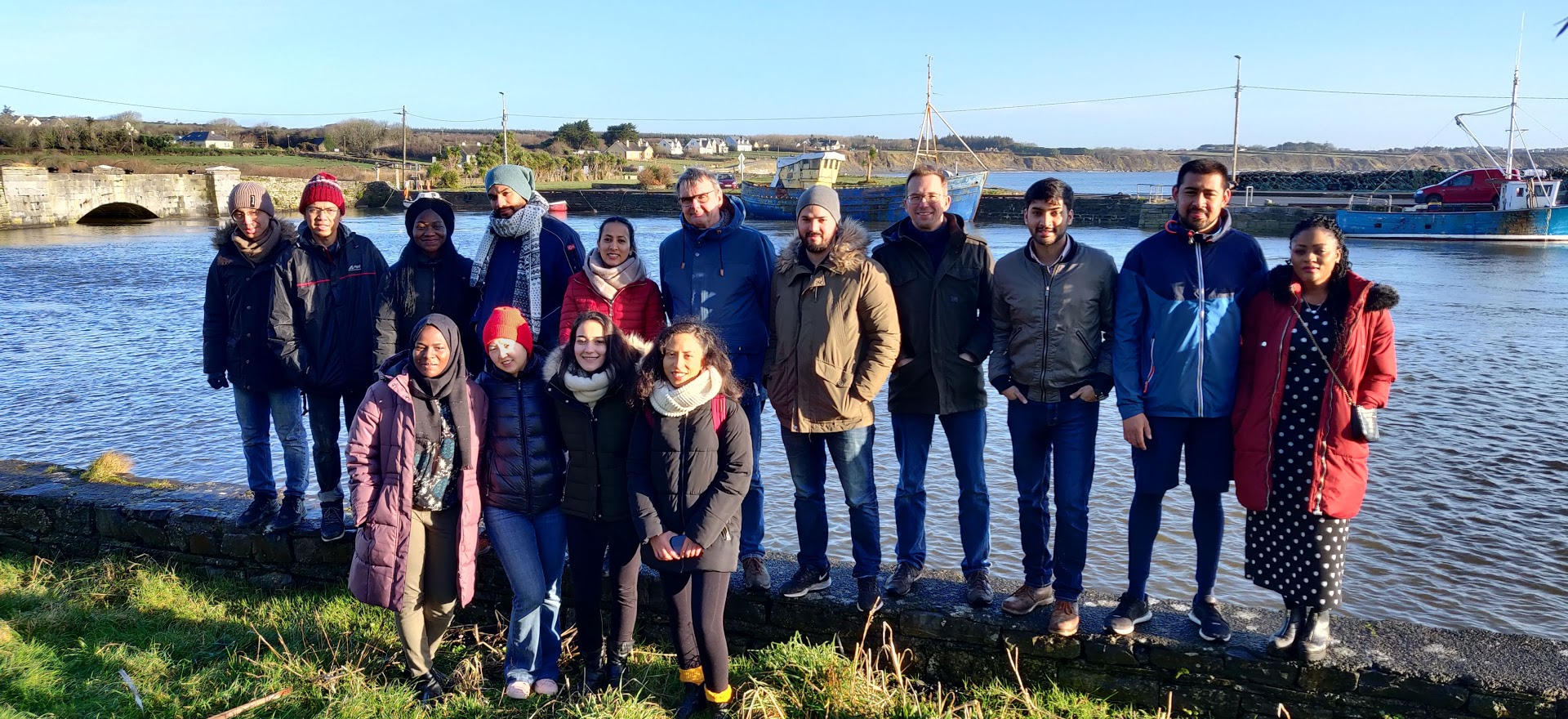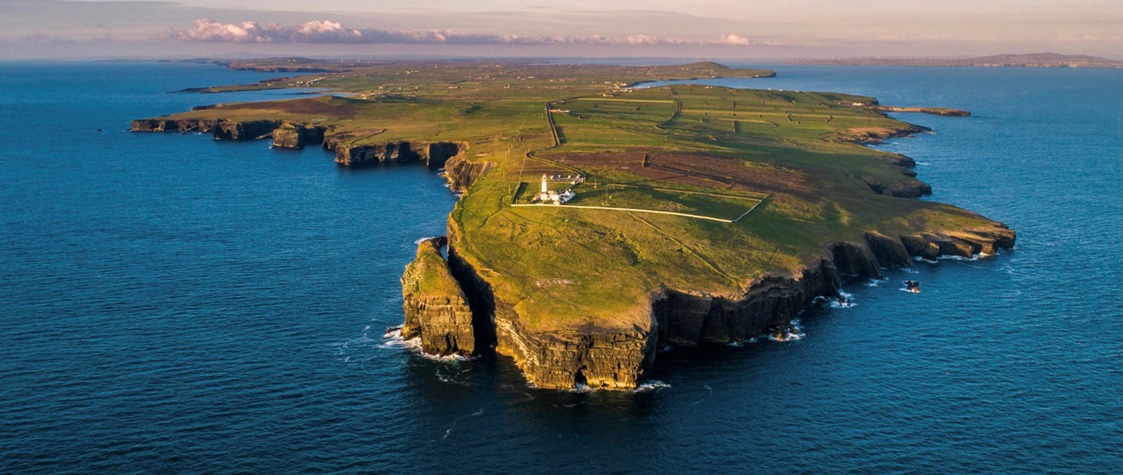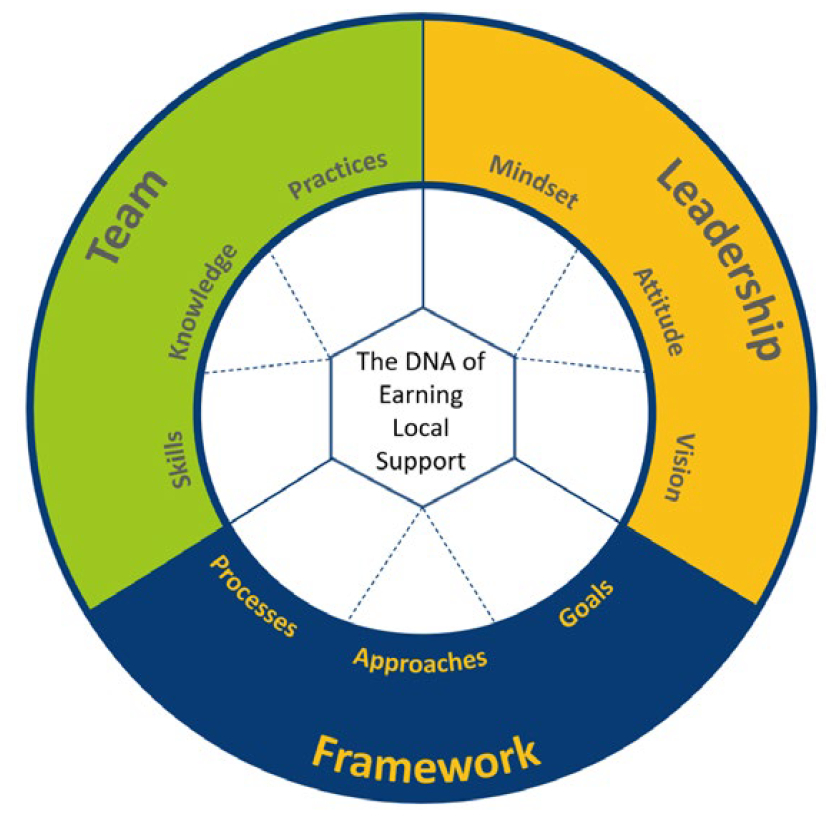THE
CASE
STUDIES
Smart Engagement
Delivering on the
Ground
Busy people want to see that an approach can deliver before adopting it. Especially an approach that requires some change.
If peers in the industry have not tried it out yet and proven it works, then this is more so the case.
It would be nice if all solutions were de-risked from an innovation perspective before having to choose them. But significantly improving how local support is earned requires being a leader in the field – and this also has its benefits. The good news is, peers have tried out various aspects of the solutions and proven they work in Ireland. Projects that had their met masts cut down and their permits refused were redesigned in partnership with near neighbours and received their planning permission. This was still only a limited part of the approach. Overseas, the whole approach has been proven to work, not just for the near-neighbours and the developers, but for the whole host community as well.
To further develop and demonstrate the success in Ireland, a series of projects have been undertaken as part of this programme to build confidence in the approach to design projects wanted by both neighbours and developers outlined in the Guide. These experiences are reported on below.
Experience from other projects that prefer not to be named for now is also added as appropriate.
The named projects below demonstrate early-stage engagement. This provides the empowering building blocks that enable the creation of win-win projects.
These case studies are being added to during summer 2021.

TAKING
THE LEAP
Connect with the
energy (r)evolution
LEAP is the Loop Head Energy Action Partnership. The name and the acronym were chosen in a community brainstorming. It reflects a first consensus that the three parishes of the Loop Head Peninsula would mutually benefit by cooperating to examine the pros and cons of addressing the supply and demand of energy on the Peninsula.
LEAP was catalysed through the creation of a partnership with the International Class of the Flensburg University, Germany. Flensburg had been working with communities in Scotland for the previous 20 years. In January 2020, fifteen postgraduates together with four of the university staff came to Ireland, to the Loop Head Peninsula for a five-week intensive experience of applying their energy knowledge to the needs to the communities on the peninsula.
LEAP was initiated to research, develop and demonstrate a process to involve a wide cross-section of community members in the conversation about how best to understand and undertake the energy transition. It helped develop the Guide in Section 4 of this programme that is applicable to any renewable energy project in Ireland. It demonstrates the challenges and opportunities of grass roots driven energy action and shows how a little bit of facilitation can go a long way.

ADDRESSING
THE MAIN
QUESTIONS
Earning Local
Support through
Protecting and
Building Local Value
LT is Loop Head Together. It was created within this programme to address the need that LEAP made evident: that in order to examine the role of any energy project in the local sustainable development, then there needs to be a larger, wider conversation about where energy fits in with all the other aspects of local sustainable development.
This set of case studies digs deeper into the formation of:
-
a community sustainable development vision,
-
a community-based multi-stakeholder forum to co-design projects,
-
participatory project assessments,
-
frameworks to address challenges, fears and aspirations, and
-
partnerships for the Just Transition.
They also show aspects of the preparation communities need to undertake to be in a position to partner to host large infrastructure projects; and by so doing shows developers what level of meaningful stakeholder and community engagement is needed before a project gets designed.

SUSTAINABLE
LEADERSHIP
Delivering a Design
Wanted by All
CFOAT - Comharchumann Fuinnimh Oileáin Áran Teo - is the Aran Islands’ Energy Coop. The CFOAT case study was undertaken to demonstrate and examine the initial engagement a developer needs to do at a local level if a project is to be co-designed successfully in a way that builds local support. It also highlighted the reality that even if the developer was a subsection of the community – the extreme pro-community situation – they were still a developer advocating significant change in the area, and so needed to advance their engagement in a systematic and structured way so that the rest of the community felt that their voice was being heard. This highlights the increased importance of Stage 1 engagement (Figure 13 of the Guide) for developers that come from outside the (potential) host community.
This set of case studies digs deeper into:
-
a developer’s ESG / CSR vision,
-
a developer’s role in a community-based multi-stakeholder forum to co-design projects,
-
a developer – community partnership for participatory project assessments,
-
frameworks to address challenges, fears and aspirations, and
-
partnerships for the Just Transition.
They also show aspects of the preparation developer’s need to undertake to be in a position to partner to roll-out locally supported infrastructure projects; and by so doing helps developers prepare for the level of meaningful stakeholder and community engagement needed before a project gets designed.
